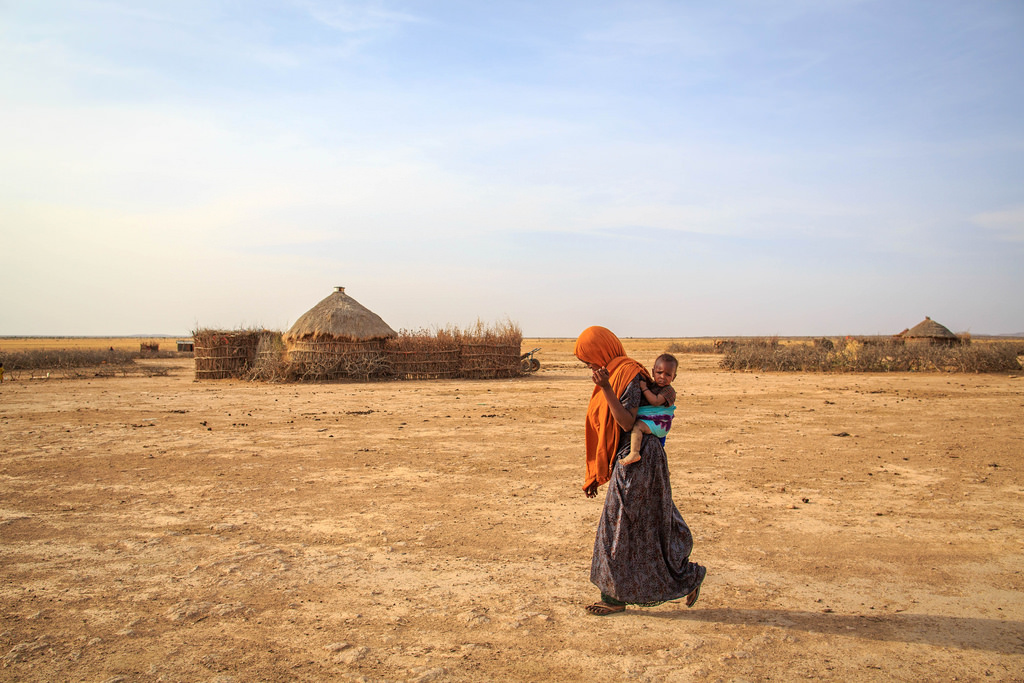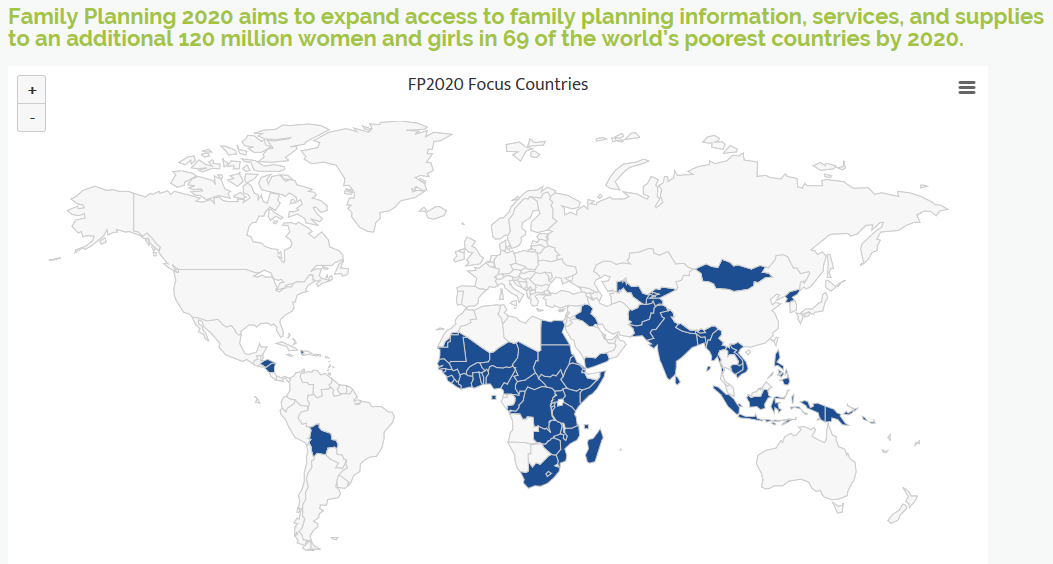
Photo: XXXXX
The recent publication entitled Drawdown: The most comprehensive plan ever proposed to reverse global warming, details the top 100 solutions that have the greatest potential to reduce emissions or sequester carbon from the atmosphere. The team of over 200 scientists and researchers behind the publication have modelled and detailed 21st century solutions to a 21st century problem, namely those that benefit the environment and society in a variety of ways. It is therefore not shocking (at least to those of us in the sexual and reproductive health and rights, and gender sectors) that girls’ education and family planning rank 6th and 7th respectively on this comprehensive list of solutions to save the planet, sitting well ahead of many infrastructure and energy related solutions, which are the most widely known climate change solutions.
For women to have children by choice rather than by chance and to plan and space their family size is a matter of dignity, autonomy and empowerment. At the Margaret Pyke Trust, with the Population & Sustainability Network, we advocate for those 214 million women and girls around the world who are not able to choose – because of either cultural norms, myths, attitudes of clinic staff or needing to travel long distances to reach their nearest health facility – to name but a few barriers to family planning that women face.
Access to voluntary and rights-based, quality family planning information and services is not only essential to women and girls’ health and empowerment but also has the potential to contribute significantly to sustainability – including adapting to and responding to climate change.
High levels of unmet family need in developing countries (see map of the 69 FP2020 focus countries here) account for some of the population pressure felt in these countries and risks undermining their hard won development successes as population growth outpaces development efforts. Incidentally, many countries with high levels of unmet family planning need are already affected by the severe effects of climate change. Indeed, there is a high degree of convergence and overlap between these complex development challenges.
Secure rights contribute to global goals on poverty, climate, and development
Secure rights lead to a host of benefits for women and their communities, including increased incomes—which women are more likely to reinvest in their families—and improved food security, health, and education for women and their families. Strengthening their property rights can help break the cycle of poverty and encourage equitable development.
The forests rural women manage also contain vital biodiversity and vast carbon stores. At least 24 percent of the aboveground carbon in tropical forests is in community lands, and securing community land rights immediately decreases deforestation. Yet the success of these solutions depends on legal protections for women.
In the face of myriad obstacles, many women are on the frontlines defending their lands. Indonesia’s largest indigenous network, the Indigenous Peoples Alliance of the Archipelago, recently elected its first female secretary-general, Rukka Sombolinggi. From Indonesia to Liberia to Peru, indigenous and rural women are asserting their voices and demanding to be heard.
Though this progress is remarkable, it remains vulnerable without secure legal protections. For indigenous and rural women, land is the foundation of their livelihoods and wellbeing, and secure rights open the door to a more stable, secure, and prosperous future
Many countries recognize “population pressure” as an issue for adapting to climate change, but few incorporate family planning into national adaptation planning or poverty reduction strategies. The Inter-governmental Panel on Climate Change (IPCC) – the global scientific body informing the United Nations’ agency for Climate Change, the United Nations Framework Convention on Climate Change – acknowledged the role family planning can play in responding to and adapting to climate change. Improving access to family planning helps save women’s lives by reducing the total number of births per woman and helps reduce birth rates among high-risk groups. Meeting the need for family planning services in areas with both high fertility and high vulnerability to climate change (such as the Sahel region of Africa) can reduce human suffering and help people adapt to climate change. This is also important in wealthier countries like the U.S., where there is unmet need for FP services as well as high CO2 emissions per capita[i].
It is clear that family planning directly benefits women, their children and families, and that there is increasing understanding that furthering women’s rights benefits women and the environment; it’s a win-win.
Members of the Population & Sustainability Network are pleased to see increased recognition of the role family planning can play in adapting to and responding to climate change. As the world prepares for the 23rd global climate change conference, or COP 23, girls’ education and family planning are some of the “unsung” solutions that merit greater attention and credit. However, this has yet to translate into policy or funding changes, nor has it been of much benefit to those living in areas around the world with high levels of unmet need, who are already experiencing the devastating effects of climate change.

